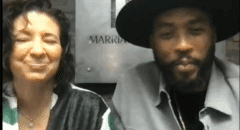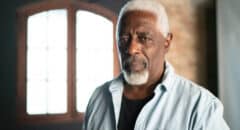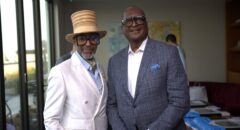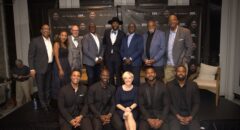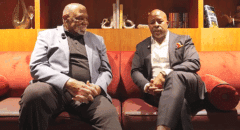
For many men in the Black community, the conversation around cancer (or health in general) is somewhat taboo. Conversations around illness, prevention and family health history are often avoided until someone in the family is diagnosed with an illness.
“Looking back, cancer was not talked about openly in the African American community I grew up in,” prostate cancer survivor Bin McLaurin says.
“I had no real perspective on any of the symptoms that go along with prostate cancer and the conversation about prostate [cancer] really had never been discussed in my family and with any of the men that I knew. So I didn't really have any kind of awareness of my prostate and prostate cancer or issues with the prostate,” he adds.
Fortunately, his diagnosis prompted an open dialogue with his family.
“I would often hear about relatives that were sick with something, but we never really knew the details. It was never disclosed–maybe after they passed– that they had cancer. It was almost spoken in a hushed tone like there was kind of a shame around it or that it was not to be talked about,” the Scottsdale, Arizona native shares. “I certainly reached out to my immediate family and my cousins and all the men in my family, and the women as well, because I wanted them to know that at the age that I was (in my 40s) that I had gotten prostate cancer. But also if it could happen to me, at least go get checked. Oftentimes, it is the women in our families who encourage the men to go get their health checks. So yeah I certainly reached out to everybody to try to get them to start normalizing that conversation around cancer and cancer screenings and knowing when to get screened and knowing their health status.”
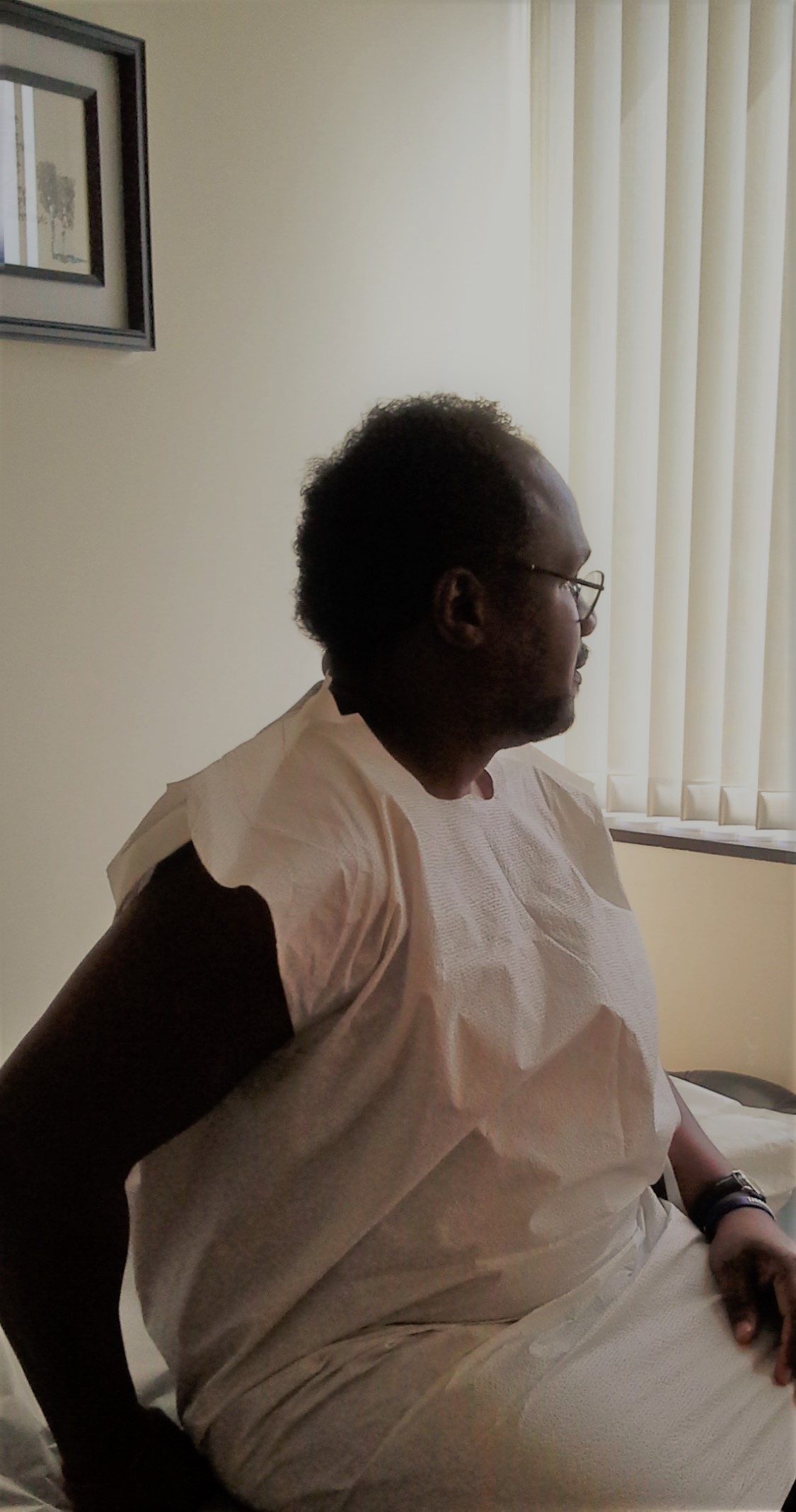
McLaurin, who recalls having a “lingering sense” that something was wrong with his health six months prior to his diagnosis, also found little guidance in the medical community when he voiced his concerns.
“The questions that I had about my diagnosis–the stage of cancer that I was diagnosed with and why did it impact men of color at such a higher rate than others–I didn't really get specific answers for and that's really because with prostate cancer and African American men, there's not a lot of research that had been done and we're talking about back in 2014,” McLaurin shares. “There had not been a lot of research done with African American men and prostate cancer so I think the questions that I had there weren't a lot of answers to unfortunately. I think the doctor just didn't have the research to answer my questions.”
RELATED: Prostate Cancer: The Basics Every Man Needs to Know
There also wasn’t much literature for men of color being passed around the doctor’s office, which prompted McLaurin to begin conducting his own research.
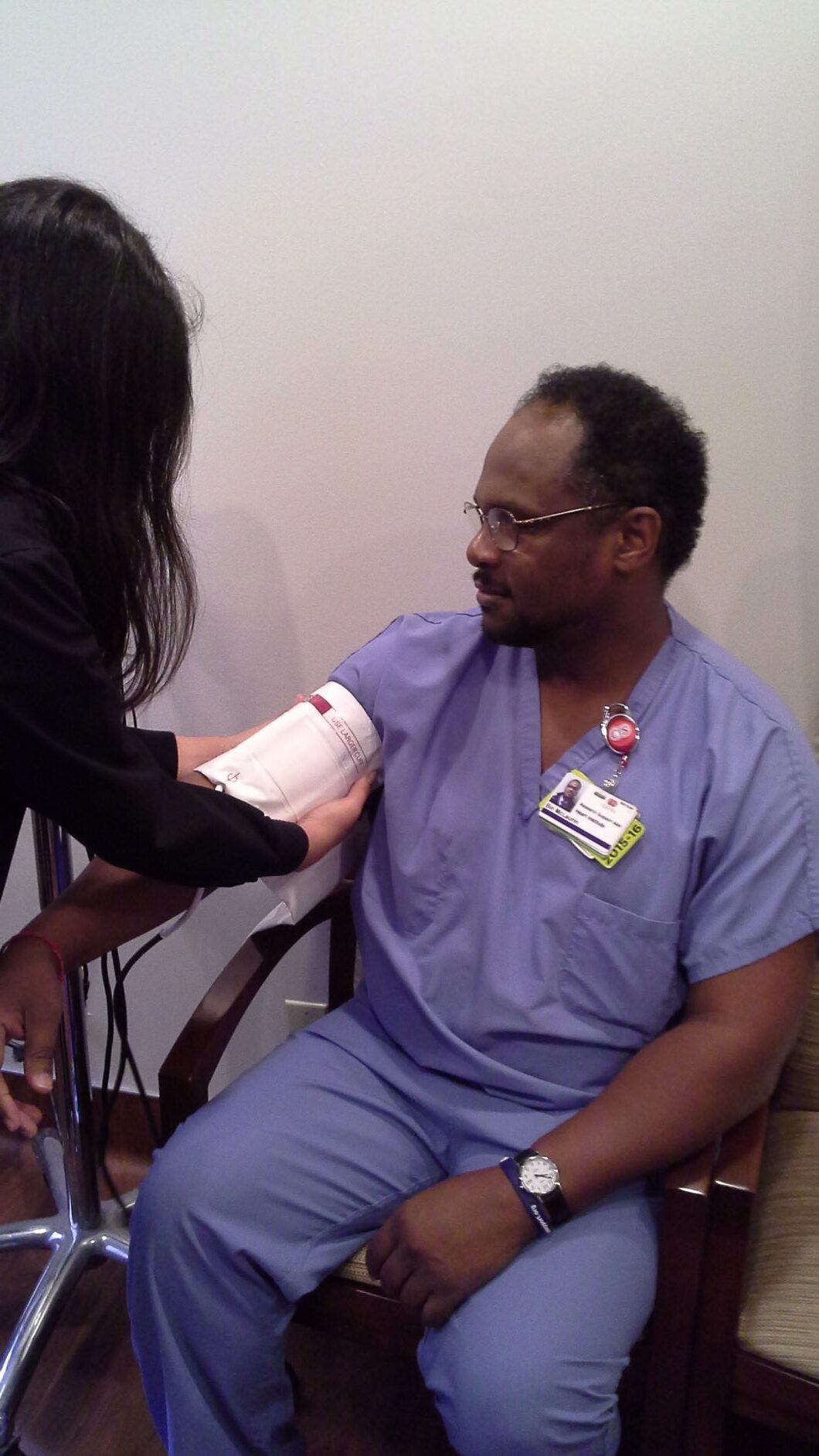
What he found was startling.
Around one in six Black men will be diagnosed with prostate cancer at some point in their life. Black men are also twice as likely to die from prostate cancer than other men.
“Those are the kind of statistics that started to worry me and I was seeking all of the answers to the questions [that] impacted me because I was facing a crisis in my life with prostate cancer, and when you don't know; it's almost like you start to panic because you need answers,” the men's health advocate says.
After seeing the ”jarring statistics that men of color and African American men experience when it comes to illness and cancer,” McLaurin felt compelled to reach out to the community he was raised in to raise awareness.
“There is such little awareness around prostate cancer and cancer in general, and sometimes I find the that men of color that I spoke to were in the dark about when to get screened, their chances of getting cancer, and the factors involved in treatment. They had no real connection or understanding so I felt that there needed to be more awareness. Certainly, there needed to be more screenings in the community because I found that a lot of men in general, not just people of color, would not necessarily go to get health checks,” he says.
“Getting routine health checks can help save lives–you know, early detection– especially like it did in my life, because I was able to find out I had prostate cancer and I caught it in its early stage. Therefore, I had a very good prognosis that my outcome would be great and I am now going to be a 10-year survivor this year,” McLaurin adds, urging Black men to begin getting screened for prostate cancer at age 40.
RELATED: 5 Questions You Should Be Asking If You Have Prostate Cancer
In an effort to continue to raise awareness and erase the stigma that men have to be “macho”, McLaurin also started a nonprofit, fittingly called MACHO.
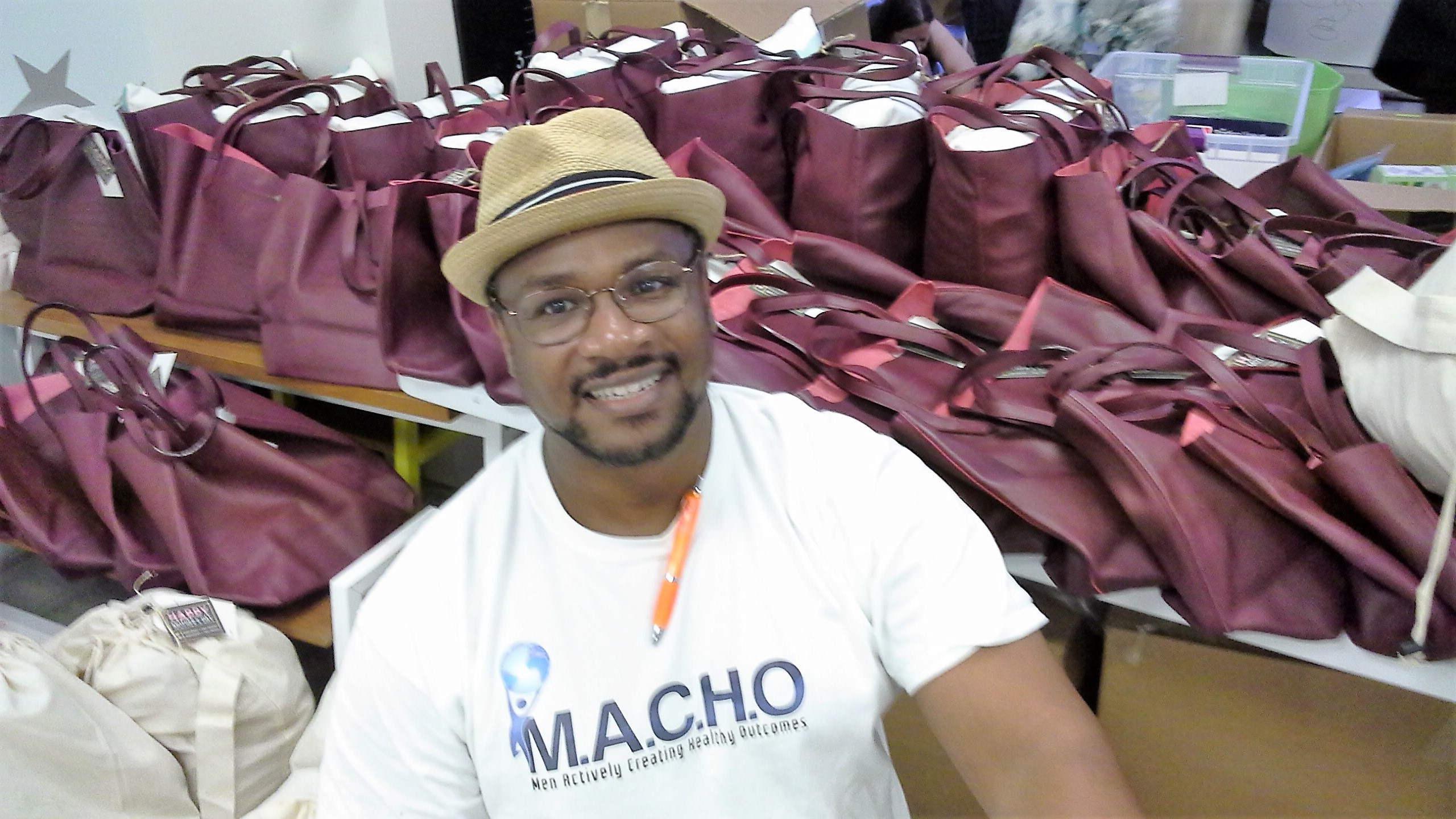
“It's an acronym for men actively creating healthy outcomes and it's a foundation–a nonprofit–that is mainly focused on building awareness and partnering and collaborating with known organizations in the community where Black and brown men often gather like Barber shops, churches, community centers. I partnered with these organizations to hold mental health events,” McLaurin shares
The main focus of the events? To distribute literature that had images of men of color on it, so that they could finally have literature geared toward them.
“My goal was to help normalize the conversation around mental health and to encourage men to get involved with their health… Don't wait till something is wrong or something is not right in your health. Actually, make an appointment and go for a routine health check–you know your annual physical– because that way you can find out if there is something wrong. You can address it earlier,” the prostate cancer survivor adds.
The advocate has also shared his story as part of Bristol Myers Squibb's Survivorship Today, a series that aims to help the understanding of what it's like to live with cancer today.
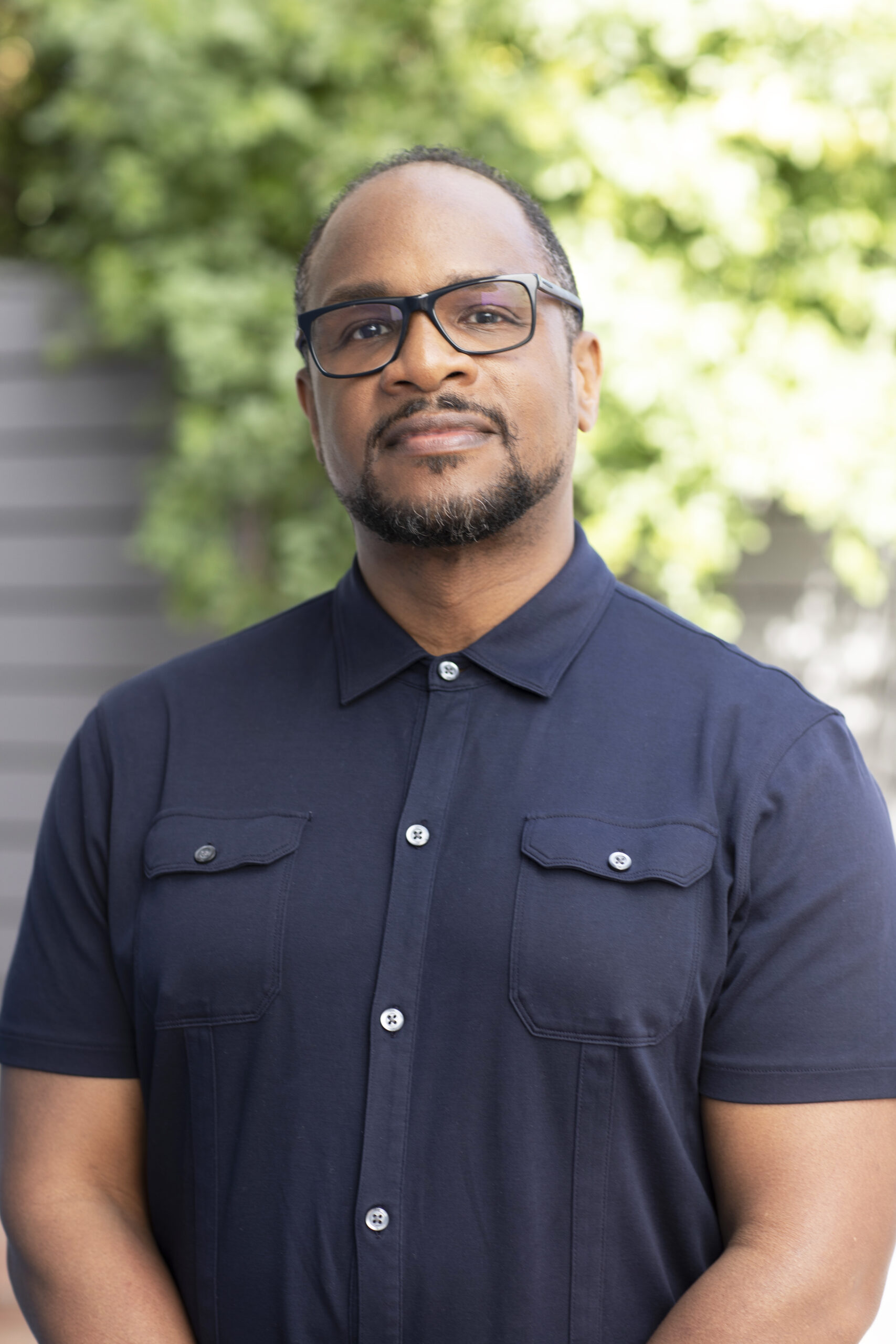
McLaurin’s Key to Survivorship
McLaurin has been cancer-free for nearly 10 years. His key to survivorship? Community.
“I want to just bring in Bristol Myers Squibb and their survivorship today program because for me, they are an excellent resource for cancer survivors to share their stories and to have a safe place to process their experience, where you get to hear people's stories of how they have navigated their cancer journey. I find a lot of hope in that and I think that that is mostly what a lot of cancer survivors are seeking. It's just that they're not alone and that there is hope. Even with a severe case and diagnosis, it does not have to be the doom and gloom story and I think that's one of the beautiful things about [the] Survivorship Today program,” he says.
McLaurin’s advice to those living with prostate cancer
- Your diagnosis doesn’t have to be a death sentence. “The main thing is that [the] cancer diagnosis does not mean it's the end. It is a serious situation but it does not have to mean that it has to be a horrible situation because there are a lot of new treatments available, there's a lot of research now that has been done, there's a lot more awareness around why certain cancers impact the Black and brown communities (and thereby the treatments are geared specifically to the Black and brown communities), and also there's a greater understanding of the needs of the Black and brown communities, which are somewhat different at times than some of our other communities. So I think the awareness is happening. Certainly, within Survivorship Today, there's a lot of awareness around cancer survivorship, so it doesn't have to mean that cancer is a death diagnosis. You can live longer, healthier lives even with the cancer diagnosis,” McLaurin says. “There's so much support–so many resources that are available. There are platforms like Survivorship Today where [you] can find information and hear fellow patients who are also diagnosed with cancer, hear their stories, and find hope and resilience. There's a lot of hope out there and I certainly want our Black and brown communities to get involved. Let's normalize this in the community–let's normalize these conversations so that we can help prevent people from dying and suffering.”




